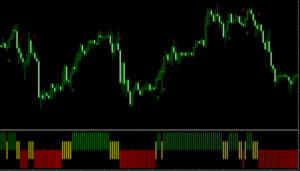
VAT registration Dubai
Value Added Tax (VAT) was introduced in the United Arab Emirates in January 2018 to diversify the economy of the country by generating new sources of revenue. Since then, it has become an integral part of the tax system, equally impacting businesses and customers. However, businesses operating in the UAE have to navigate several VAT obligations, such as VAT registration UAE, to prevent potential legal consequences imposed by the tax authorities.
Therefore, in this article, we will discuss the importance of VAT in the UAE’s economy, the significance of VAT registration Dubai, the eligibility criteria, documentation requirements, the process, and some quick tips to maintain compliance with the UAE’s VAT system.
Understanding Value Added Tax (VAT)
VAT or Value Added Tax is a form of indirect tax levied on a product at each stage of the supply chain, whenever a value is added from its production to the final sale. Businesses collect this tax from the consumers on behalf of the government and further claim credit for the tax they have paid on purchases. This ensures that the tax is only paid on the value they add, thereby ensuring a fair system for all kinds of businesses.
Here’s an example to make it more clear for you –
If a manufacturer buys raw materials for AED 100 and adds a value of AED 30 in the production, making a total of AED 130. Further, a VAT of 5% (AED 6.5) is applied to the product and sold to the retailer at AED 136.5. The retailer further adds a value of AED 20, making a total of AED 156.5 on which a VAT of 5% (AED 7.82) is applied. The final price of the product becomes AED 164.32 at which it is sold to the end consumer. Thus, the final VAT cost is borne by the final recipient of the product.
Nevertheless, the amount that is remitted to the government is the VAT collected at each stage minus the VAT paid on inputs.
Importance of VAT registration UAE
There are several benefits of registering for VAT in the UAE –
- Legal compliance
- Enhanced financial management
- Government benefits
Eligibility for VAT Registration Dubai
Businesses, local and international, operating in the UAE with taxable supplies and imports above the mandatory registration threshold of AED 375,000 are required to register for VAT within 30 days. However, companies not meeting this limit can opt for voluntary registration.
Mandatory VAT Registration
If the taxable supplies of the business exceed AED 375,000 within the past 12 months or are anticipated to surpass this limit in the next 30 days, they have to mandatorily register for VAT with the FTA. Failing to complete this obligation can lead to penalties.
Voluntary VAT Registration
On the other hand, if the total value of the taxable supplies and imports made by the business exceeds the threshold of AED 187,500 but does not exceed AED 375,000, they can opt for Voluntary Registration. This option can benefit startups and small businesses by allowing them to claim input tax credits on purchases.
Process of VAT Registration UAE
Here is a step-by-step process to register for VAT with the FTA –
Eligibility Check – The process starts with determining your eligibility for VAT registration UAE. This decision would be based on your annual taxable turnover, whether it crosses the specified limit as stipulated in the VAT rules.
Document preparation – To register for VAT in the UAE, you need to accumulate certain documents and information, including
- A trade license copy
- Passport copies and Emirates ID of authorized signatories
- Proof of authorization for the signatories
- Contact details (address and PO Box) of the business
- A bank letter verifying the bank account details of the company
- Articles of Association or Partnership Agreement (if required)
Application Submission – If you want to apply online, you can visit the web portal of the Federal Tax Authority and create an e-Service account, where you can access the VAT registration form and other services. Fill in the requested details about your company such as activities, turnover, and bank details. Review it for accuracy and later submit it along with the supporting documents.
Payment and application review – Once you have submitted your application, you will find clear instructions on the fee amount and payment methods for registration. Choose one as per your preference and make the payment for the VAT registration fee. Upon receiving the fee, the FTA will review the application and submitted documents and accordingly issue a Tax Registration Number (TRN) and a VAT Certificate. This number and certificate would be further used for tax purposes.
Get the comprehensive list of documents required for VAT registration UAE from the business advisors at Shuraa Tax.
VAT Exempt Supplies in the UAE
According to Federal Decree-Law No. (8) of 2017, the following sectors are exempt from VAT and hence, are not required to undergo the VAT registration process or file VAT returns in the UAE:
- Bare Land – supply of undeveloped plots
- Financial Services – services conducted without an explicit fee, discount, commission, rebate, or a similar consideration enjoy VAT exemption
- Local Passenger Transport – Provision of passenger transportation within the UAE, such as buses, taxis, and metros
- Residential Properties – The lease and sale of residential buildings
VAT Penalties in the UAE
The penalty for non-compliance with VAT laws is up to AED 50,000 along with other legal actions such as additional fines. In addition, if the taxable entity fails to make VAT payments on time, it could lead to a 2% penalty for the unpaid tax due, followed by a 4% monthly penalty due one month after the due date of payment.
Quick tips to maintain VAT compliance
You can follow these practices to comply with VAT laws and regulations in the UAE:
- Charge VAT as required – VAT-registered entities must charge VAT on all their taxable supplies and also display it on the invoices.
- Keep detailed records – Maintain accurate records of the company income, costs, and associated VAT charges. This will help you calculate your VAT liability, which is fundamental for VAT returns. The FTA recommends maintenance of these records for at least five years.
- Submit timely returns – Submission of timely VAT returns to the FTA will help abridge your VAT charges and deductions for a specific tax period.
- Issue invoices – Businesses must ensure to issue tax invoices for all their taxable supplies, including details like the date of issue, an identification number, Tax Registration Number (TRN), etc.
- Comply with FTA guidelines – Most importantly, businesses must comply with all the VAT regulations established by the FTA. For example, rules about invoice formatting, record keeping, VAT return submission, etc.
Streamline your VAT Registration UAE with Shuraa Tax
Fulfilling all the VAT obligations is crucial to ensure compliance with tax laws. However, you are also required to oversee different aspects of the VAT registration dutifully to avoid any mishaps and other issues.
Shuraa Tax will help you calculate your VAT liability accurately and ensure timely fulfillment of all your VAT obligations, including VAT registration VAT returns, etc., thereby minimizing the risk of errors and provision of correct data. To learn further about VAT in the UAE, connect with Shuraa Tax and Accounting Consultancy at www.shuraatax.com. Let Shuraa Tax Consultants walk you through the process in detail.








